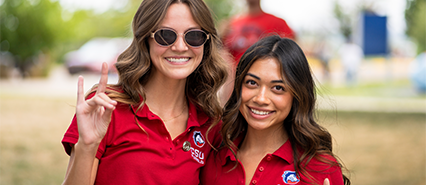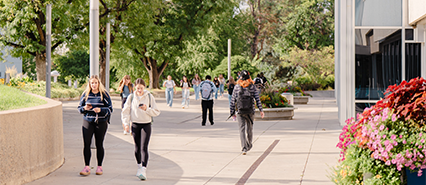Definition of Experiential Education
The Association of Experiential Education (AEE) definition of experiential education informs the practice at CSU-Pueblo. Experiential education is a philosophy that informs many methodologies in which educators purposefully engage learners in direct experience and focused reflection in order to increase knowledge, develop skills, clarify values, and develop students capacity to contribute to their communities. The principles of EE practice are:
- Experiential learning occurs when carefully chosen experiences are supported by reflection, critical analysis, and synthesis.
- Experiences are structured to require the learner to take initiative, make decisions, and be accountable for results.
- Throughout the experiential learning process, the learner is actively engaged in posing questions, investigating, experimenting, being curious, solving problems, assuming responsibility, being creative, and constructing meaning.
- Learners are engaged intellectually, emotionally, socially, and/or physically.
- The results of the learning are personal and form the basis for future experience and learning.
- Relationships are developed and nurtured: learner to self, learner to others, and learner to the world at large.
- The educator and learner may experience success, failure, adventure, risk-taking and uncertainty, because the outcomes of experience cannot totally be predicted.
- Opportunities are nurtured for learners and educators to explore and examine values.
- The educator's primary roles include setting suitable experiences, posing problems, setting boundaries, supporting learners, insuring physical and emotional safety, and facilitating the learning process.


